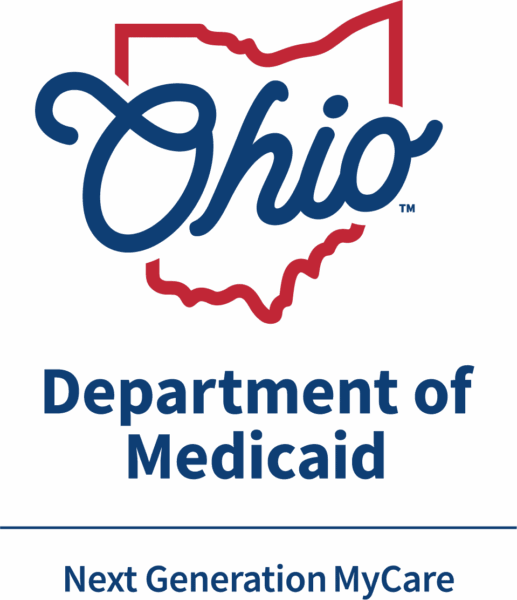What is a PCS caregiver?
Medicaid’s PCS program offers services to those with limitations who would not normally be able to live independently in their homes without help. These groups include:
– the elderly
– people with disabilities
– the chronically ill
– those with temporary-but-debilitating conditions
In Nevada, Medicaid recipients can receive care from loved ones such as friends and family members through the PCS program. These caregivers are known as Personal Care Aides (PCAs).
PCAs and other PCS caregivers offer assistance with everyday tasks so that people can remain in their homes and communities.
PCS caregiver responsibilities
PCS caregivers can assist with many different types of activities that a person may no longer be able to do on their own.
By assisting those tasks, caretakers allow people to live with dignity, stay in a familiar environment, and remain connected to friends and family.
They can aid in many different activities, including:
– meal preparation
– dressing
– bathing
– other hygiene tasks
– light housework
– money management
– transportation
Helping with these tasks can be time-consuming, depending on the level of independence of the consumer (as Medicaid refers to their recipients). That’s why Medicaid’s PCS program makes it possible for eligible consumers to receive paid assistance to compensate the people they trust the most for caregiving. It gives them an alternative to moving into a facility to receive care.
If you are a consumer working with the PCS program, you need to be willing to train and manage your caregiver or designate a representative to do so on your behalf.
What is Self-Directed Care?
Nevada’s PCS program offers the option for what’s known as Self-Directed Care (or consumer-directed care). This means that eligible Medicaid consumers can choose and hire their caregivers, even from among their friends and certain family members. The consumer will then act as the employer of the caregiver.
If the consumer is not capable of making this decision or monitoring care, Medicaid can appoint a Personal Care Representative to hire, train, and oversee the caregiver that’s chosen. Consumers in Nevada can also make use of an Intermediary Service Organization (ISO) to handle the financial aspects of this arrangement.
The benefit of Self-Directed Care is that the consumer gets the flexibility to choose when and how care should be provided to them and by whom, if they are able.
Not all family is eligible to become a Personal Care Services caregiver, however. Consumers are not permitted to hire the person who is legally responsible for them. That means spouses are not eligible for payment in this program.
Siblings, adult children, and more distant family members are considered appropriate choices, but only when they are not Legally Responsible Individuals (LRIs).
The benefits of using the PCS Caregiver Program
The PCS program was created to help consumers get the best care possible from the people who love them the most. Policy experts understood that the most successful caregivers are often the people the Medicaid recipients love the most and feel most comfortable with.
Loved ones are also more willing to put a high level of effort into their caregiving tasks, and spend more time with the consumers. This is especially the case if they’re given the financial assistance needed to make caregiving possible.
Even though most caregivers don’t have a nursing license or other certification, their caregiving can also be relatively advanced in terms of the connections they forge with consumers. No certification is needed to become a PCS caregiver for a friend or family member.
The PCS program was developed as a means of providing high-quality care to Medicaid recipients and encouraging friends and family to support one another through difficult times. It was also formed to compensate caregivers who often sacrifice time, careers, and other aspects of their own lives in the service of a sick or disabled loved one.
Another benefit of the PCS program is that the personal assistance provided by caregivers can include medication administration and wound care. Normally, only registered nurses are permitted to perform these tasks. Other home healthcare workers cannot do these things.
Getting paid by the PCS program in Nevada
PCS caregivers receive payment for their services via an intermediary that works with Medicaid.
Before you can pay your caregiver in the state of Nevada, consumers or their representatives must first select an Intermediary Service Organization (ISO) to provide fiscal and supportive services and act as a liaison with Medicaid.
For a list of enrolled Nevada Medicaid ISOs, you can contact your local Medicaid District Office.
Provider Agency Care
There is an alternative to Self-Directed Care called Provider Agency Care. If a consumer uses this program, they must live in the specific area where it is offered. Not all locations in Nevada have provider agencies.
Provider Agency Care allows the consumer to select an agency to act as their caregiver’s employer.
PCS eligibility
In order to be eligible for the PCS program, you (as the “employer”) must live in Nevada and have a disability or health issue that requires assistance with activities of daily living (ADLs). This will be assessed by a licensed occupational therapist.
There are also financial criteria to meet and this changes annually. In 2020, a single applicant could not have a monthly income exceeding $783 (or $1,175 for a couple) or countable assets over $2,000 ($3,000 for a couple). This excludes your home if it is valued under $595,000.
Because Medicaid rules can be very complex, it’s wise to find a Medicaid planner. You can use the free service provided by the American Council on Aging.
How to apply for a PCS caregiver?
Medicaid recipients who want to apply for a PCS caregiver should call Nevada Medicaid’s fiscal agent at (800) 525-2395. You can also find more information available by clicking here.
SSI and SSID
Nevada residents might also be eligible for benefits under both the Social Security Disability Insurance (SSDI) and Supplemental Security Income (SSI) programs.
Read on to find out if you are eligible:
Social Security Disability Insurance (SSDI)
In order to receive SSDI, you had to have worked and paid social security taxes for 5 of the last 10 years in a job approved by the Social Security Administration. The amount you receive is directly related to the amount of FICA taxes you have paid over your working years.
In addition, SSDI recipients must have a medical disability that meets the Social Security Administration’s definition of disabled and that condition must be assessed as so severe that it renders you unable to work. While there is a list of all medical conditions that qualify, this includes:
· ALS
· Cancer
· Heart conditions
· Cerebral Palsy
· Multiple Sclerosis
Some mental health problems may also qualify you for SSDI, including:
· Schizophrenia
· Intellectual disorders
· Psychotic disorders
· Autism
For your disability to qualify you for SSDI, it needs to last more than 1 year or be expected to lead to your death.
SSI
SSI benefits are available to those who 1) have an impairment that prevents them from working on a regular basis, and 2) have a low income and less than $2,000 in assets ($3,000 for a couple
You may apply for SSI benefits in person at any Social Security office or by calling SSA at (800) 772-1213 to schedule an appointment.
Social security won’t pay a caregiver
While SSDI will not pay for caregiving directly, the recipient can use their monthly benefit to pay someone privately for their caregiving services. In addition, a family member caring for someone who is disabled may qualify for either SSDI or SSI.
Other resources for paid caregivers
If you do not qualify for the above resources in order to pay a caregiver in the state of Nevada, there may be other ways of securing funds.
VA benefits
If you are a veteran, Veterans Affairs the U.S. Department of Veterans Affairs (VA) provides funding for relatives – including adult children and even spouses – to provide you care if you are elderly, disabled, or have Alzheimer’s disease or another type of dementia. The programs allow for consumer-directed care. Click here for more information.
Long-term care insurance
Some long-term care insurance policies may pay benefits to family members who act as caregivers. But you will need to speak to your insurance agent in order to see if you qualify for that type of funding.
If these do not apply to you, consider contacting the National Council on Aging or area agencies on aging in the state of Nevada to learn about other services.








